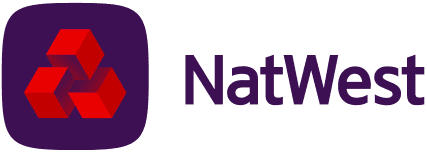For UK small to medium-sized enterprises (SMEs) seeking financial support, the concept of the “best business loan” is rarely a one-size-fits-all answer. Instead, it is highly dependent on a business’s unique circumstances, its specific needs, and a careful assessment of the various borrowing factors at play. Simply opting for a standard high street bank loan without exploring the broader market might mean overlooking a more suitable and cost effective financing solution.
Understanding Your Business Profile and Needs
Before approaching any lender, it’s beneficial for businesses to undertake a thorough internal assessment and health check. This self-evaluation will help clarify financial requirements and strengthen any subsequent loan application.
Key areas to consider include:
- Purpose of the Funding: Why do you need the money? Is it for working capital, purchasing new equipment, expanding premises, hiring staff or consolidating existing debt? Different purposes align better with different loan products.
- Amount Required: Clearly define the exact sum needed. Borrowing too little might leave you short and stop the purpose, while borrowing too much can lead to unnecessary costs.
- Repayment Capacity: Objectively assess your business’s ability to make regular repayments. Lenders will scrutinise your cash flow, profit margins and overall financial health. It’s advisable to create a detailed cash flow forecast to demonstrate this capacity.
- Time Horizon: How quickly do you need the funds and over what period do you intend to repay them? Short-term needs may suit different products than longer term requirements.
- Business Credit History: Understand your business’s credit score and history. A strong credit profile can open doors to more favourable rates and terms, while a less-than-perfect score might steer you towards specialist lenders or products. For newer or smaller businesses, personal credit history of the directors may also be a factor.
- Available Security: Do you have assets that could be used as collateral? Secured loans often come with lower interest rates but involve a higher risk if your business defaults.
Exploring Types of Lending Products
The UK business finance market extends far beyond traditional term loans from high street banks. Many specialised products are designed to meet diverse business needs and circumstances.
Standard Business Loans
- Unsecured Business Loans: These do not require collateral, making them accessible for businesses without significant assets. The interest rates are normally higher than secured lending and sometimes may require a personal guarantee from directors, especially for SMEs. Amounts can vary but can extend to large amounts, though usually, not as high as secured lending.
- Secured Business Loans: These loans are backed by assets such as property, equipment or even outstanding invoices. The collateral reduces the lender’s risk often leading to lower interest rates and potentially larger loan amounts in comparison to unsecured lending. However, the asset is at risk if you do not keep up repayments.
Alternative and Specialist Lending Products
Moving beyond the standard offerings can unlock financing that is a better fit for specific situations:
- Asset Finance: This is designed for businesses looking to acquire or refinance specific assets like machinery, vehicles, or technology. Instead of an outright purchase, businesses can lease or hire purchase the asset, spreading the cost over time. The asset itself often serves as security.
- Invoice Finance: Also known as invoice factoring or discounting, this allows businesses to unlock cash tied up in unpaid customer invoices. A third-party lender advances a percentage of the invoice value upfront, providing immediate cash flow. This is particularly useful for businesses with long payment terms for their customers.
- Merchant Cash Advance: Suitable for businesses that accept credit or debit card payments, this involves a lump sum advance repaid through a percentage of future card sales. Repayments flex with sales, making it adaptable for businesses with fluctuating revenue.
- Revolving Credit Facilities (Lines of Credit): Similar to a business overdraft, this provides a flexible line of credit that businesses can draw upon as needed, up to a set limit. Interest is typically charged only on the amount borrowed making it a flexible option for managing short-term cash flow gaps.
- Startup Loans: Specifically tailored for new businesses, some with government backing, these loans aim to provide initial capital injections to help launch the early stages of the business. They may be unsecured and sometimes come with mentoring support.
- Bridging Loans: These are short-term, typically secured loans, used to “bridge” a funding gap, for instance, when awaiting the sale of a property or other long-term finance.
- Peer-to-Peer (P2P) Lending: Businesses borrow directly from a pool of individual or institutional investors via online platforms and this can sometimes offer competitive rates.
Matching the Loan to the Purpose
The suitability of a loan product is heavily influenced by its intended use:
- Working Capital and Day-to-Day Operations: Revolving credit facilities, short term unsecured loans or merchant cash advances can be effective for managing daily expenses, inventory or temporary cash flow shortages.
- Purchasing Equipment or Vehicles: Asset finance is specifically designed for this, allowing businesses to acquire necessary tools without a large upfront outlay.
- Expansion or Major Investment: Larger secured loans or long-term unsecured loans might be more appropriate for significant investments like new premises, major marketing campaigns or acquiring another business.
- Managing Debt: Debt consolidation loans can bring multiple existing debts into one manageable repayment potentially at a lower overall interest rate.
- New Business Setup: Startup loans are designed for this exact purpose, providing initial capital to get a venture off the ground.
It is important for businesses to look beyond the most obvious lending options and consider how different products align with their specific financial situation and strategic goals. Engaging with brokers or financial advisors who have a broad view of the market can also be beneficial in identifying the most appropriate funding avenues, but knowing your own business inside out, its financial health and future plans is the best starting point to getting the best business loans for your business.
Best Business Loans FAQs
How does my business credit score affect my ability to get a loan?
Your business credit score is a key factor lenders assess to gauge your financial reliability and the likelihood of you repaying the loan. A strong credit score generally leads to more favourable interest rates and terms, while a lower score might limit your options to specialist lenders or result in higher borrowing costs.
Is a secured loan always better than an unsecured loan?
Neither one is better than the other, as it entirely depends on the unique needs of each business. While secured loans often come with lower interest rates due to the collateral reducing the lender’s risk, they also mean you risk losing the asset if you cannot repay the loan. Unsecured loans offer flexibility as they don’t require an asset as security, but they typically have higher interest rates and may require a personal guarantee from directors.
Can I get a business loan if my business is brand new?
Yes, new businesses can secure financing although options may be more limited than in comparison for established businesses. Startup loans, often government-backed, are specifically designed for new ventures and may consider your personal credit history and business plan. Some lenders also focus on the viability of the business idea and projected cash flow rather than a long trading history.
What documents will I typically need to apply for a business loan?
While requirements vary by lender and loan type, common documents include your business plan, cash flow forecasts, recent bank statements, profit and loss statements, balance sheets, and potentially personal and business tax returns. Lenders want to see a clear picture of your business’s financial health and its ability to manage repayments. Depending on the lender, loan type or size, you might find that open banking assessments are all that is required.
How long does it take to receive funds after a loan application?
The time frame varies. Traditional bank loans can sometimes take longer for approval and funding. However, many online and alternative lenders can be quicker, with some providing decisions within hours and funds transferred within a few business days, particularly for smaller loans.

